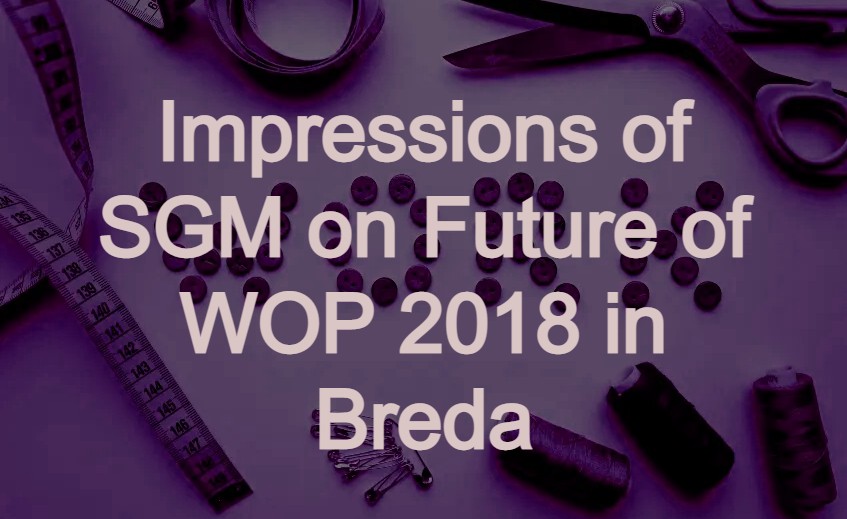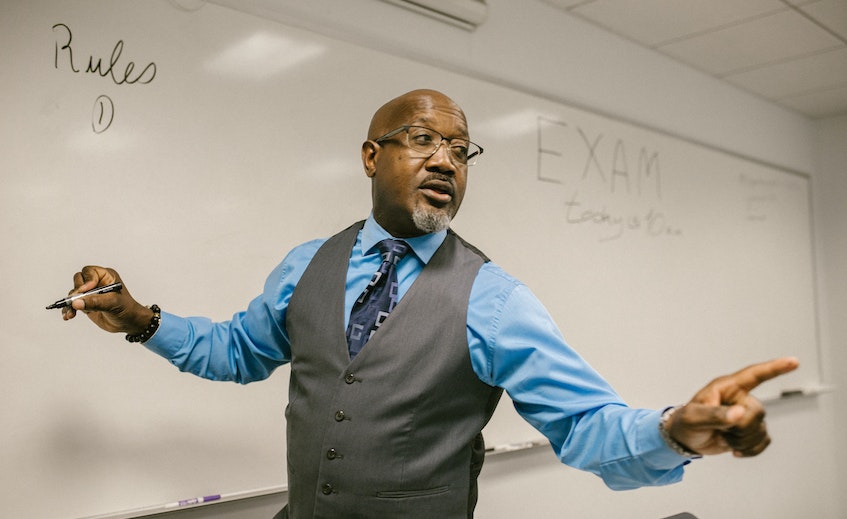
How Relevant is the Field?
January 17, 2018
#WOPsoWhite
February 14, 2019Impressions of the Small Group Meeting on Future of Work and Organizational Psychology, 16-18 May, Breda, the Netherlands
Sometimes in life I wonder what has happened, and other times in life I wonder whether something has really happened. I wondered whether a Dutch radio presenter really said that Meghan Markle did not look ‘that black’ during her wedding, and in fact, he did, and discussed it with another radio presenter, who in traditional Dutch style, tried to suppress and ignore color as something meaningful in contemporary society. This thought occurred to me in a blur on a Saturday afternoon, in the car, next to my wife who drives. The blur was the result of a threeday long session on the future of work and organizational psychology, taking place in Breda, the Netherlands. The meeting brought together 50 people from across Europe and from Iran, China and Canada to talk about the future of the field (WOP). The psychology of the individual at work has always been at the center of my interests and has been an obvious choice in my life as a field of study and a career path. However, during the years of becoming an academic, the uncomfortable feeling of being at the wrong place never truly disappeared and just another conference presentation in which the richness of human life being reduced to the simplicity of a variable in a model proved to be another scream for something that would have meaning, something that would truly bring academics together, not just as scholars practicing the craft of thinking but also as human beings, which academics turn out to be as well. This opportunity was finally there in Breda in May 2018, when being human was no longer restricted to the nonconference events in the evening during informal dinners, but as the very aim of the meeting – to bring people together who care for the psychology of the individual at work, and who are currently dissatisfied with the research in WOP and the system under which academics are made subject to agendas that do not promote the values of individuals, be it at work or in academia. We are not alone in this, and across academia, many debates and actions are taking place about the future of universities and scientific research. Yet, there are two observations to be made here; on the one hand, collective action is rare in academia, as it is in society, and therefore any meeting to envision and come up with practical ways of changing the future of the field is important. On the other hand, each academic in the contemporary university has the choice to either play the game or to do something about it. Yet it is this very ‘doing something’ where it becomes difficult, because how do we know what we need to do as an individual when we want to change the system, and possibly also our own lives and destiny? Three days in Breda did not allow us to resolve poverty in the world, but generated many ideas and plans for the improvement of our own field and therefore our lives in universities and hopefully those of others. It is a disgrace that academics who claim to have understanding of the workplace are willingly compliant with abusive labor conditions, and it is only through collective action that we will be able to escape our predicament. Not surprisingly during the meeting three words were mentioned over again, the three c-words: collective, community and collaboration. In a field that has relied on the individualized nature of human existence, we have incorporated these beliefs to such an extent that we no longer can identify what the c-words precisely mean, but we do have an intense longing for it, as a long-lost friend who reminds us of a past that is long gone, one where we did not have digital lives that determined who we are, and where friendships and contacts were to be established in the real world rather than the loneliness of an existence in-between. Even more so, the meeting exhausted us, forced us to think beyond the comfortable boundaries of academic small talk of variables and theories, and intertwined with the dreams revealing in the mid-May dusk as a prequel to the morning which offered nothing more than a succession of the night with a slight chance of a lightbulb moment with the hope of a breakthrough in thinking, but even more so in feeling, from transitioning from the academic cognitions to the human emotion of processing the conversations, the uncommonness of the statements made by the participants, not as an academic argument but as an experienced reality of us all in the contemporary university, where tears flow free, inside us, when we stop for a moment and realize that each of the numbers we can freely refer to as burnout victims represent a human being, that these numbers become meaningless in their overarching reach towards the description of what it is that we all fear, the alienation that needs to be transposed into hope, that is why people come together, and sit, here, we are among friends and we can disagree, and in the variety of forms that we design ourselves to talk, to find meaning, we deviate from our traditional form of presentation-and-listening into a collaborative mode, where we have to find new ways of communicating, sharing, asking questions rather than arguing, sharing emotions rather than trying to convince, summarizing and planning rather than seeing differences. This is the venue where we question the hypernormalization of academia, where academics willingly comply with the status quo, where structural inequalities are amplified through the separation of those who thrive within the system (we are the Men) versus those who suffer, and it always the same who suffer, the women, the vulnerable, the ‘temps’, the PhD-students, the slaves who teach for nothing and a promise of an academic career, all who are not as white as Einstein, all who are not middleclass, and we just pretend it is normal, just as normal as wondering about the whiteness of Meghan Markle, just as normal as a bureaucracy where administrators dictate against professionalism, just as normal as suffering as sacrifice for an academic career, just as normal as forgetting what our values are because we just want to get our paper published, just as normal as not knowing what science, universities and academia mean as terms as we are stuck in the hypernormalized meanings anyway, just as normal as going to conferences and pretending that we will make the world a better place, we are the social engineers, and we can fix any problem in the world, but we easily overlook the environmental destruction, the wars that resulted of it, the rising authoritarianism which fits so nicely with capitalism, the workplace that we have constructed and, behold, it was good, it was the high-performance workplace, we dictated it, we called the managers upon us, explore and behold, these are the words that we say to ourselves and the world, but we no longer want this, let us stop the nonsense and find our true voice, find the words that we have to say to ourselves and the world, the calls to our peers who are locked in universities across the world, drawing their moderated mediation models, let us shout out to them who are longing to break the silence, the words are said to break the silence, let us break the silence and speak about how we want to change the system, how we want to be guided to do the right thing, how we want to structure our universities to be able to conduct the research that we ought to do, how we can truly support each other and be a light to ourselves and others who are struggling, all this that we can do to create a better future for ourselves, our colleagues, our students, our managers, and our societies.
Matthijs Bal




